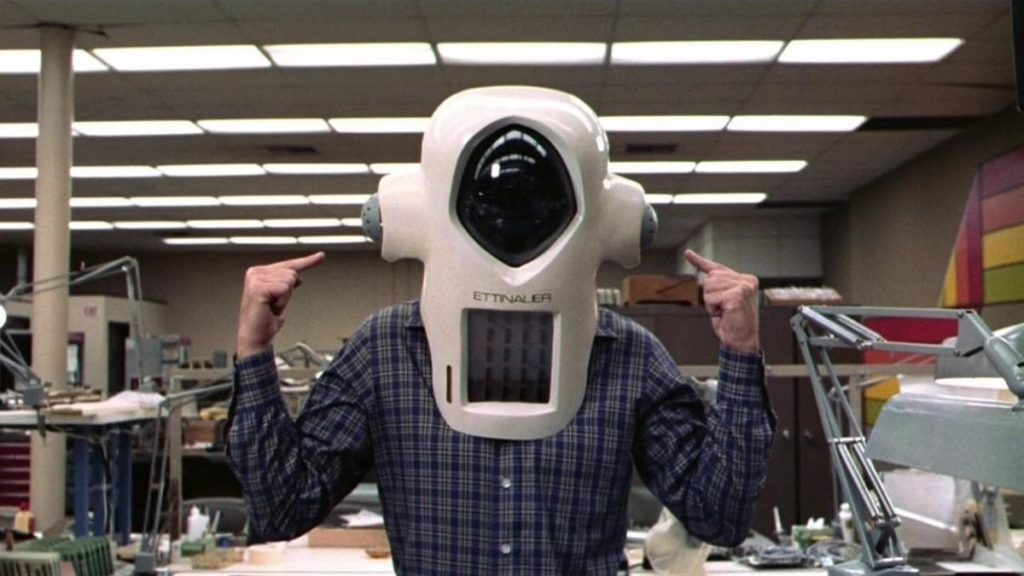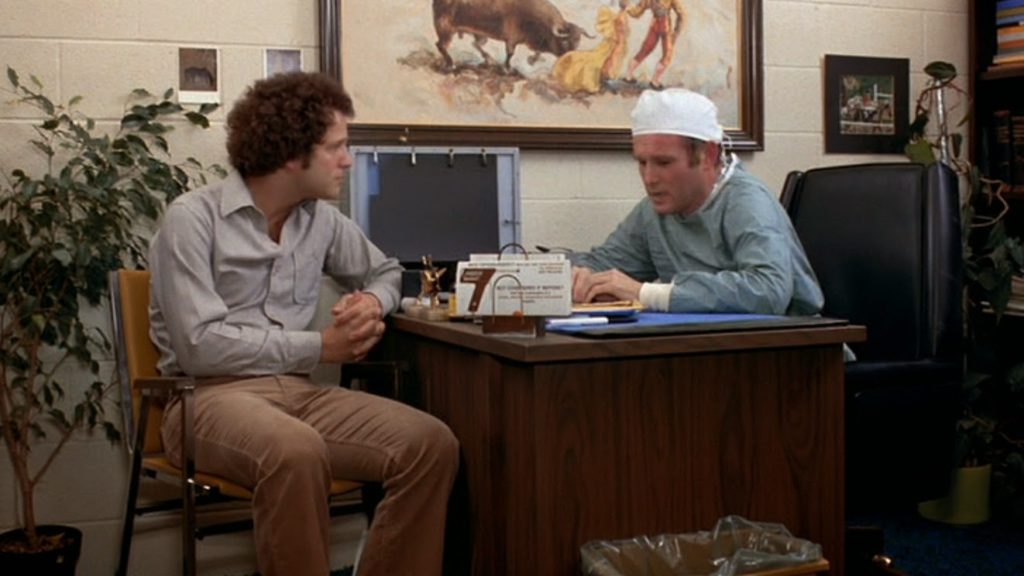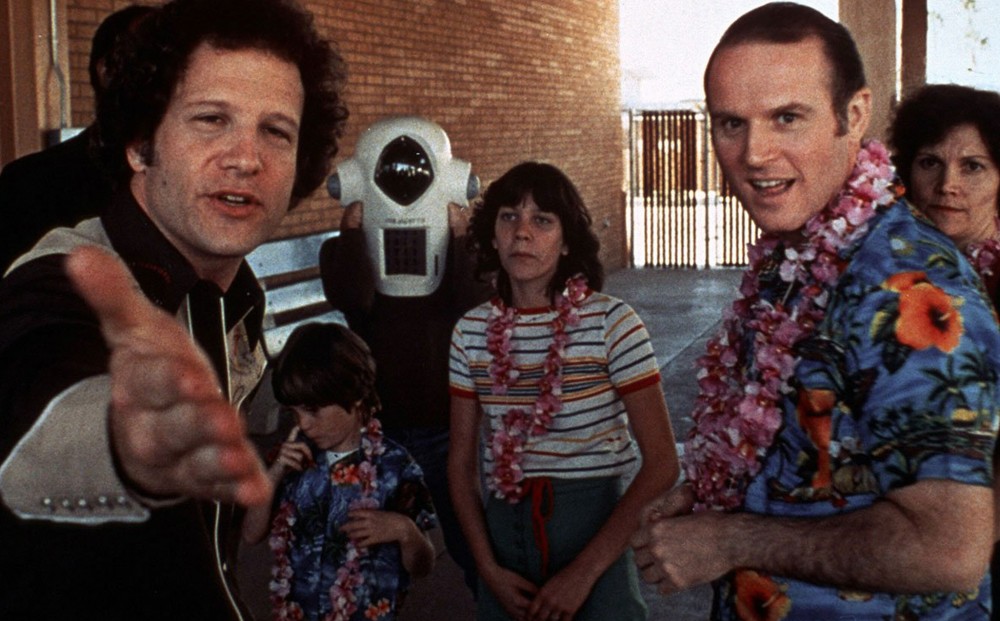|Matt Lambert|

Real Life plays at the Trylon Cinema from Friday, February 16th, through Sunday, February 18th. Visit trylon.org for tickets and more information.
I used to think the death of culture was Aretha Franklin songs played in Applebee’s commercials to sell cheap chicken wings and obscenely sauced slabs of ribs. I now know that the death of culture was when Albert Brooks stopped making movies. It’s an overused phrase, but I can’t help myself: There never will be another Albert Brooks. Likewise, there will never be another film quite like Real Life.
The 1979 mockumentary is simple: follow an American family for one year in Phoenix. Led by the incomparable Brooks, reality becomes distorted for everyone begins to perform for the cameras, rather than act as a normal family. From the joyous exuberance of Brooks learning his film crew can follow Mrs. Yeager (Frances Lee McCain) to a trip to the gynecologist, to the horribly quick emergency horse surgery performed by Dr. Yeager (Charles Grodin), everything begins to spiral and fall apart as real life becomes compromised for the Yeager family and Brooks.

Brooks is known to a millennial like myself as the talking fish I had to watch four times a year in middle school. To many others, he’s the man that killed on talk shows, helped put Saturday Night Live on the map, and portrayed the most realistic reporter I’ve ever seen in movies.
Real Life was Brooks’ directorial debut. In total, he would only direct seven feature films. While his films Defending Your Life, Modern Romance, and Mother are more widely renowned, Real Life is truly a trendsetting masterpiece. I don’t know how artists like Nathan Fielder, Sacha Baron Cohen or any other modern satirist could have their respective filmography without it.
The culture has shifted to presenting the mockumentary as television rather than movies. Some of the most important television shows of the 2000s have used the mockumentary style like The Office, Parks and Recreation, Abbot Elementary, and The Rehearsal. Christopher Guest hasn’t made a movie since 2016, What We Do In The Shadows has transitioned to a successful television show, and every once in a while, you hear a vague rumor of a sequel to This is Spinal Tap.
The mockumentary movie may be fading from the monoculture, but Real Life still resonates nearly 50 years after its release. Characters in the movie are constantly acknowledging the cameras existence, staring through the lens like they’re addressing the audience at every turn. It even has Charles Grodin giving the best Michael Scott impersonation at the dinner table on the first night of filming, well before Michael Scott was even conceptualized.
In every scene of Real Life, a smile grows too wide, a scene lingers too long, and the absurdity is so profoundly uncomfortable that even the folks at Documentary Now! would think it’s too much.
Everyone has a reference for mockumentaries, but no one has the type of vision that Albert Brooks possesses. It makes me sad knowing he only makes small appearances as a COVID-19 supplies hoarder in later seasons of Curb Your Enthusiasm. Brooks never made another mockumentary style feature film, focusing instead on more straightforward comedic films.

After watching the recent Max documentary by Rob Reiner on the comedian’s life titled Albert Brooks: Defending My Life, a sadness grew over me. With each film he directed, particularly with Real Life, the same pattern emerged: confrontation with studios. No one understood the farcical nature of his premises in the studio system. Apparently, the depiction of the over-the-top jerk didn’t put butts in seats.
I feel like we were robbed of Albert Brooks’ 20-movie directorial career that would’ve undoubtedly included a three-picture deal with Netflix that would be buried because it didn’t do as comparable of streaming numbers as The Gray Man did. Too bad for us all that will live in a world where Real Life didn’t win an Oscar and Nobel Prize, because Albert Brooks deserves both.
Edited by Finn Odum
